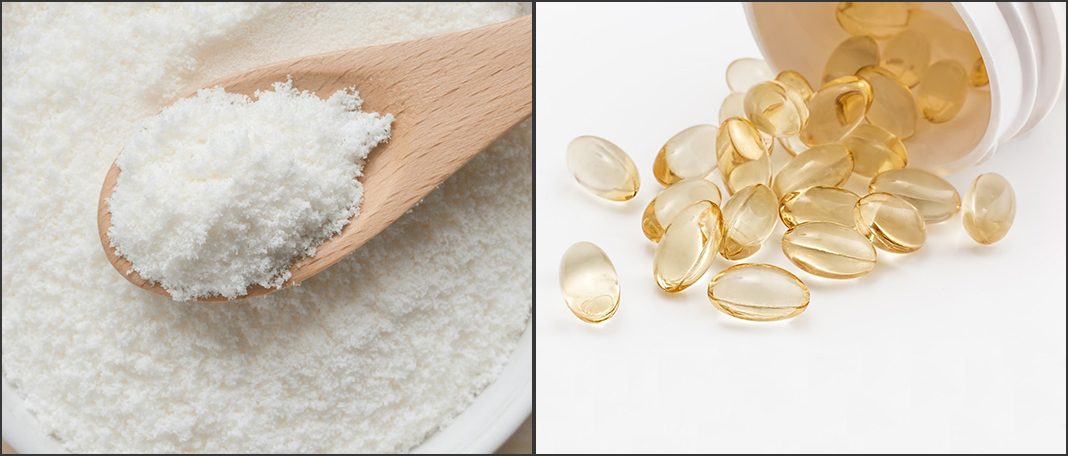Collagen is the most abundant protein present in animals. Collagen protein molecules are fiber-like structures that help in making connective tissues. Collagen fibers act as a connecting tissue for prominent components of bone, muscle, skin, and cartilage.
The human body contains connective tissue cells called fibroblasts which produce collagen. However, collagen production reduces with age.
The protein contains different amino acids prominently glycine, proline, and hydroxyproline which are responsible for various growth functions in our body. Collagen is responsible for the structure and framework of cells and tissues.
Humans have found 28 types of collagen so far. Out of those, type 1 collagen covers 90% of the collagen in human beings.
Collagen plays a significant role in cellular processes such as tissue repair and immune response.
Foods to boost collagen production
Collagen is richer in animals than in humans. Consume animal skin and ligaments such as chicken skin and pork knuckle. Fish skin and jellyfish are certain seafood that can increase collagen production.
Other than animal proteins, eat foods that are rich in vitamin C. As vitamin C helps in synthesizing collagen molecules, having citrus fruits, leafy vegetables, spinach, peppers, and berries is a great way to increase collagen.
In addition, vitamin D and zinc-containing foods contribute to collagen production and maintenance. These foods can improve your skin health and joint issues by protecting collagen from degradation.
Collagen peptides
One can obtain collagen peptides from animal collagen. Collagen peptides are small protein molecules that come from the breakdown of the whole collagen. Consuming the collagen peptides helps build the skin and cartilage tissues.
How collagen supplements work
Studies have shown that hydrolyzed collagen supplements hydrate your skin and lessen wrinkles. According to experts, intake of 2.5 to 15 grams of collagen per day for at least eight weeks improves skin health.
In addition, women who have low Bone Mineral Density (BMD) can consume collagen peptides regularly as per their doctor’s advice. These peptides can help increase BMD and reduce joint pain, a condition in osteoarthritis.
Are Collagen supplements worth the hype?
Collagen supplements are widely available in the market. Though they are expensive, people prefer collagen supplements as they compensate for components that are lacking in their regular food choice. The side effects of collagen supplements are not adverse but the ingredients added with the collagen peptides tend to harm your health.
Most manufacturers produce collagen supplements with herbal extracts and biotin, also known as vitamin H, a B-complex vitamin. Consuming high doses of biotin can interfere with thyroid function.
Moreover, the herbal extracts that come with supplements can react with other prescribed medicines and cause problems during pregnancy and breastfeeding.
Consuming collagen supplements is fine if your doctor prescribes them. If not, you can go for natural food which maintains collagen. Instead, taking a balanced diet with workouts such as resistance training and weight-bearing exercises helps maintain the collagen protein.
Health benefits of collagen
Most cosmetic products such as moisturizers and serums use collagen as it can treat skin dehydration and prevent wrinkles.
In the medical sector, doctors prescribe collagen supplements and collagen-based medicines for people who suffer from joint pain, wounds, burns, and diabetic ulcers.















